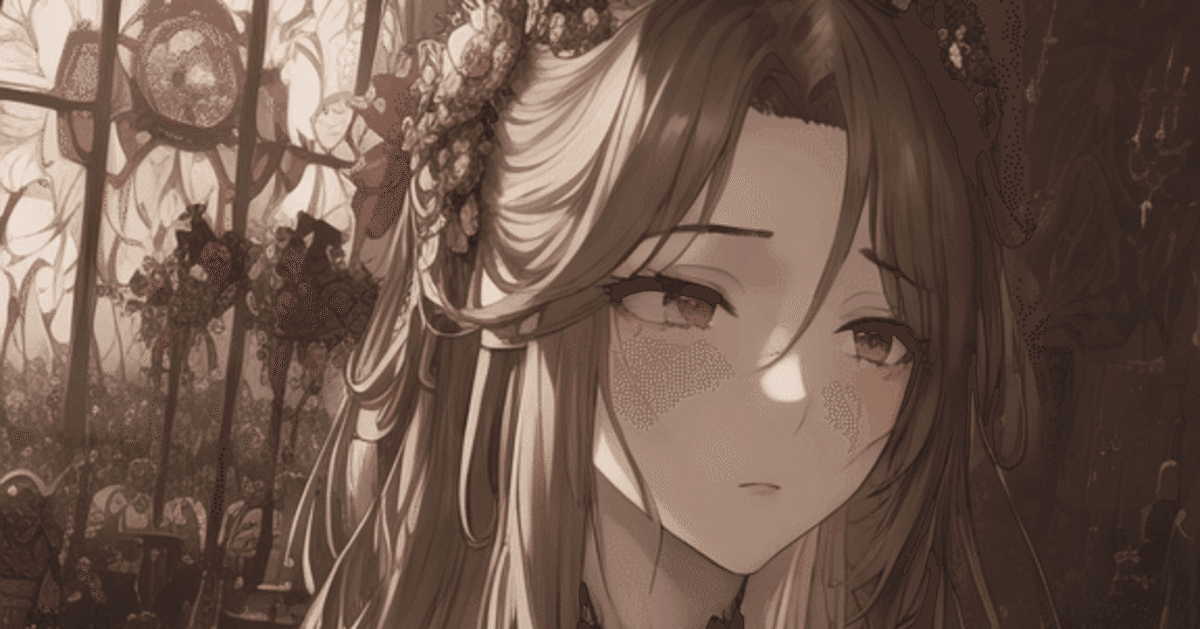
If it were true, my mother, who should have cherished me the most, hit me and abandoned me. Because of that, I don't understand my own worth5
I'm not ordinary, so I've always felt I had to act properly like everyone else. I've constantly been looking at people's faces, worrying about what others think, suppressing my desires, and holding back what I want to say. As a result, I lost track of my own feelings.
I don't have anything I want to do, nor do I have anything I like. I don't even know what kind of person I want to become. Do I have any value?
"Life still has several decades to go, right? Will it just be a repetition of falling to the bottom and climbing back up again?"
How long must this continue? I wish my thoughts would just stop, and that this self and everything would disappear...
I trusted my mother and thought to believe in her, but she broke her promise, filling me with suspicion. Not wanting to get hurt again, I thought only of myself. And then I discarded Taiyo like that...
These are Yuki's thoughts from 'Tomorrow, I'll Be Someone's Girlfriend,' finally in its last chapter!! Here's a summary from "Tomorrow, I'll Be Someone's Girlfriend" on Manabu LIFE.
Human relationships that cause trouble and the troublesome ones all follow the same pattern.
In every case, there are three characters: the victim, the persecutor, and the rescuer. While it can be said that each person has their faults, more than that, the relationships themselves are flawed.
There's a "mild psychopath" lurking in everyone's heart, and it's easy for anyone to become a perpetrator unintentionally.
"People who come to see me are mostly troubled by human relationships, and all of them fit into this triangle."
In 1968, an American psychiatrist named Karpman named these bad relationships the "DDT (Drama Triangle of Terror)".
Today, let's deepen our knowledge about the "victim".
In the "Drama Triangle of Terror", the "victim", "persecutor", and "rescuer" always appear, entangling with each other, sometimes switching roles, perpetuating bad relationships like an endless hell.
The "victim" is the main character in the "Drama Triangle of Terror". In 'Doraemon', it's Nobita; in 'Cinderella', it's Cinderella.
The "victim" is in an unfortunate situation, such as being abused by parents, bullied by classmates, or harassed by a boss.
No, objectively, this might not always be the case, but the "victim" strongly believes it to be so.
When you hear the word "victim", many of you might think of a "pitiful person". The "victim" themselves also often strongly think of themselves as "pitiful".
The "victim" always feels they are living at the center of a tragedy, always encountering trouble, always facing unpleasant experiences, always having difficult things fall upon them. They are always looking for who is causing them such trouble.
They live in a world of "pitiful me" and "horrible you".
At the bottom of the "victim's" heart lies a loss experience.
For example, a betrayal may lead them to lose the worldview of "This person is trustworthy."
Then they start thinking, "I must not trust anyone." This builds a worldview within them of "No one can be trusted."
This is how "victims" are created.
Everyone encounters painful, sad, frustrating things while living. When faced with such experiences, you, I, and everyone can become "victims".
However, those with high self-esteem, living their own lives, spend less time being "victims".
But there are always those who are perpetual "victims".
There might be someone around you who is always a "victim".
A "victim" solves one problem only to soon face another, as if they are seeking to remain in the "victim" state.
For example, there are people who are always complaining about someone.
They complain about their partner, then start complaining about their boss, and when the boss changes, they complain about their colleague.
To someone who hasn't seen this firsthand, it might seem that the person is always surrounded by terrible people and feel sorry for them.
But in reality, whether consciously or unconsciously, they choose to be in such situations. They are always looking for the "victim position".
What are the benefits of being a "victim"? Being a "victim" is actually a very easy position.
Living in a worldview where others are always to blame means that no matter what bad happens, it's not their responsibility.
Therefore, they don't need to challenge anything, make efforts, or take action. If they don't challenge, make efforts, or take action, there is no failure.
Not failing means avoiding getting hurt.
To be happy, you need to challenge, make efforts, and take action. In the process, you will encounter many failures, and each time, your heart will get hurt.
Also, envisioning your ideal self and moving towards it involves diving into the unknown, accompanied by fear.
It's much easier to blame parents, others, or the world. Living the same way without changing is comfortable, with a low possibility of failure and no unexpected events.
When you give advice to a "victim", you often hear responses like, "Yes, but..."
Such responses go on endlessly, without changing the situation.
The welfare recipients or mentally ill people I'm involved with as a care manager or support specialist are typical examples of the above.
"Victims" find the current state comfortable and do not really want to change it.
Even if a mentally ill welfare recipient says, "I want to work and graduate from welfare," they actually want to continue receiving welfare without working, because it's easier.
"Victims" want to remain "victims".
Knowing in advance that giving advice to a "victim" is mostly meaningless is crucial.
To be continued...
この記事が気に入ったらサポートをしてみませんか?
